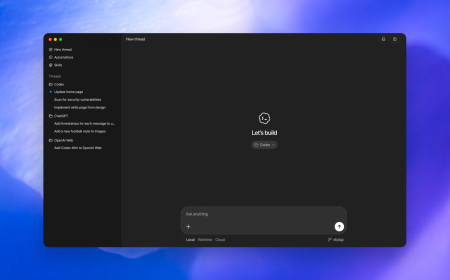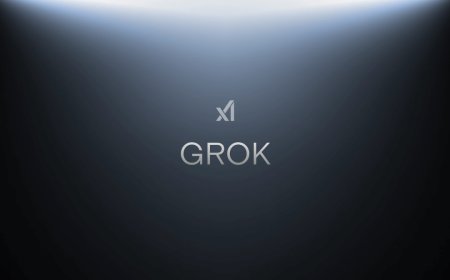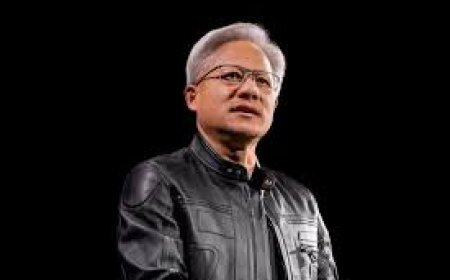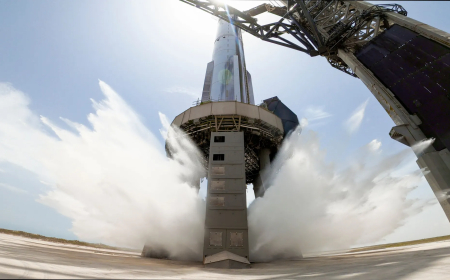Reflection AI Raises $2B to Become America’s Open Frontier AI Lab, Challenging DeepSeek
Reflection AI, a startup founded by former Google DeepMind researchers, has raised $2 billion at an $8 billion valuation. With a focus on open-source AI, the company aims to challenge DeepSeek and position itself as a Western leader in frontier AI models.

Reflection AI, a startup founded in March 2024 by two former Google DeepMind researchers, has raised $2 billion at an $8 billion valuation—a remarkable 15x increase from its $545 million valuation just seven months ago. The company, which initially focused on autonomous coding agents, is now positioning itself as both an open-source alternative to closed-frontier labs like OpenAI and Anthropic and a Western equivalent to Chinese AI firms like DeepSeek.
Founded by Misha Laskin, who led reward modelling for DeepMind’s Gemini project, and Ioannis Antonoglou, co-creator of AlphaGo, the duo’s background in developing cutting-edge AI systems is central to their mission. They argue that with the right talent, frontier models can be built outside the established tech giants.
Building Open-Source AI Infrastructure
Along with the new funding, Reflection AI has recruited top talent from DeepMind and OpenAI and developed an advanced AI training stack that it plans to make available to the public. Laskin, CEO of Reflection AI, emphasised that the company has identified a scalable commercial model that aligns with its open intelligence strategy. The company aims to empower developers with accessible AI tools while generating revenue from large enterprises and governments seeking sovereign AI systems.
Reflection AI’s team, which currently numbers around 60 people, includes AI researchers, engineers, and experts across infrastructure, data training, and algorithm development. The company has already secured a compute cluster and is targeting the release of its first frontier language model by 2025, trained on tens of trillions of tokens.
Laskin explained, “We built something once thought possible only inside the world’s top labs: a large-scale LLM and reinforcement learning platform capable of training Mixture-of-Experts (MoEs) models at frontier scale.” MoE models are a specific architecture used to power some of the most sophisticated LLMs in the field today.
Responding to China’s DeepSeek
The company’s ambition to compete with global leaders like DeepSeek and China’s Qwen models is driven by a sense of urgency. Laskin noted, “DeepSeek and Qwen are our wake-up call. If we don’t do anything about it, the global standard of intelligence will be built by someone else.”
Laskin pointed out that U.S. enterprises and governments may be reluctant to adopt Chinese models due to potential legal risks, leaving the U.S. and its allies at a competitive disadvantage. “So you can either choose to live at a competitive disadvantage or rise to the occasion,” he said.
Strong Support and Backing
The vision behind Reflection AI has garnered strong support from notable figures in the tech world. David Sacks, the White House AI and Crypto Czar, praised the move, stating, “It’s great to see more American open-source AI models.” Clem Delangue, co-founder of Hugging Face, echoed similar sentiments, calling it a win for American open-source AI.
Laskin acknowledged the challenge of balancing openness with business needs. While Reflection AI will release model weights for public use, it will keep datasets and full training pipelines proprietary. This approach mirrors strategies used by other companies, such as Meta’s Llama and Mistral.
Focus on Enterprise and Sovereign AI Markets
Reflection AI’s business model centres on offering open models to researchers while targeting enterprise customers and sovereign AI initiatives. Laskin emphasised that large enterprises prefer open models because they allow for greater customisation and control, especially when running on their own infrastructure.
The company’s monetisation will come from large enterprises building products on top of Reflection AI’s models and from governments creating independent, sovereign AI systems.
Future Plans and Upcoming Launches
While Reflection AI has not yet released its first model, Laskin mentioned that it will be text-based at first, with multimodal capabilities planned for the future. The company plans to use its recent funding round to secure the computing resources required to train these models, with the first version expected to launch in 2025.
Investors in Reflection AI’s latest funding round include Nvidia, Sequoia, Lightspeed, B Capital, and Eric Schmidt, among others.
What's Your Reaction?
 Like
0
Like
0
 Dislike
0
Dislike
0
 Love
0
Love
0
 Funny
0
Funny
0
 Angry
0
Angry
0
 Sad
0
Sad
0
 Wow
0
Wow
0

















































